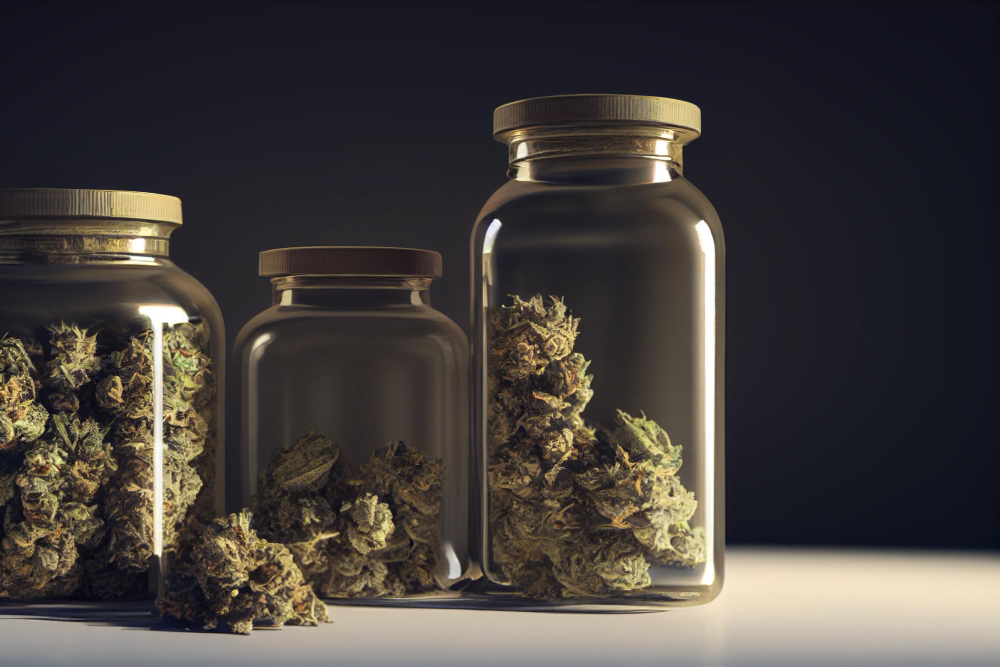Two of the most well-known and studied compounds in hemp and cannabis are Delta-9-tetrahydrocannabinol (Delta 9 THC) and Delta-8-tetrahydrocannabinol (Delta 8 THC).

Delta 8 vs Delta 9 vs Delta 10 is widely recognized for its psychoactive properties and potential health benefits. Delta 8 is a newer discovery that has gained attention for its similarities to Delta 9, with critical differences in effects, chemical structure, and legality.
This article will compare Delta 9 and Delta 8, focusing on hemp-derived products.
What is Delta-9?
Delta-9-tetrahydrocannabinol (Delta 9 THC) is a potent, naturally occurring psychoactive, and therapeutic compound found in marijuana and hemp plants. THC works by binding to specific receptors in the brain and body’s endocannabinoid system, which regulates many physiological functions such as appetite, mood, pain, and sleep.
Hemp-derived Delta-9 is the same molecule as marijuana-derived Delta-9. However, hemp-derived Delta 9 THC is typically produced in levels of less than 0.3%, the legal limit set by the US federal government. Despite this low concentration, many hemp-derived Delta 9 products exhibit the same powerful high as marijuana.
Delta-9 products create a strong cerebral buzz and visceral body highs. But is Delta-9 stronger than delta-8?
What is Delta 8, and how does it compare to Delta 9?
Delta-8-THC is a minor cannabinoid found naturally in trace quantities in hemp and cannabis. However, most Delta-8 products are semi-synthetic.
Manufacturers produce Delta-8 THC products by first extracting CBD from hemp, then chemically altering this non-psychoactive compound through isomerization. This process changes CBD’s molecular structure into psychoactive Delta-8.
Delta 8 THC is similar to Delta 9 THC in its molecular structure, but the two compounds have distinct differences in their effects on the body. Delta 8 THC is known to have a lower potency than Delta 9 THC, meaning it may have milder effects.
Several reports indicate that hemp-derived Delta-8 THC provides similar therapeutic and psychoactive outcomes to Delta-9 THC but with far less intensity and a more balanced high.
Comparing Strength and Effects
Delta-9-THC and delta-8-THC are similar, but not identical. Delta-9-THC produces a strong psychoactive effect, often resulting in euphoria, relaxation, and altered perception.
Delta-8-THC, on the other hand, is reported to produce a milder, more subdued psychoactive effect, about half as strong as Delta 9.
Some users report that delta-8-THC produces a more clear-headed, slightly energizing high than delta-9-THC when taken at the same dosage. However, users experimenting with doubling their typical Delta-8 dosages report experiencing effects rivaling traditional Delta-9.
Therapeutic Research
Delta 8
Research on Delta 8 THC is limited. Still, some studies suggest that it may have some therapeutic potential, such as reducing nausea and vomiting in cancer patients undergoing chemotherapy, and reducing anxiety and pain.
- A 1995 study published in the journal Life Sciences found that D8-THC effectively reduced vomiting in pediatric cancer patients.
- A recent study published in Cannabis and Cannabinoid Research in 2020 reported that D8-THC had similar pain-relieving effects to D9-THC.
- An animal study found that delta-8-THC may effectively reduce pain and inflammation in mice.
- A study on cancer patients found that delta-8-THC may effectively reduce nausea and vomiting.
Delta 9
Delta-9-THC has been studied extensively for its potential medical benefits, including pain relief, nausea reduction, and appetite stimulation.
- Pain relief: Delta 9 THC has been shown to have pain-relieving properties in numerous studies. One selective review found that THC was effective in reducing pain caused by cancer, while another study found it helped reduce neuropathic (nerve) pain.
- Anti-nausea: Delta 9 THC has been found to have anti-nausea effects, making it a valuable remedy for nausea and vomiting caused by chemotherapy.
- Appetite stimulation: Delta 9 THC has been found to stimulate appetite, making it a valid treatment for anorexia and cachexia.
- Anxiety: THC has been found to have stress-relieving effects at lower doses, making it a potential therapy for anxiety disorders.
Legality
Delta 9
Marijuana-derived Delta-9 is a Schedule 1 Controlled Substance. However, hemp-derived Delta 9 is federally legal and permissible in most states if the products contain less than 0.3% THC by dry weight.
Delta 8
Delta 8 THC legality is a somewhat complicated issue. While Delta 8 THC itself is not listed as a controlled substance at the federal level, its legality can be affected by how it is derived and the specific laws of individual states. Some states have explicitly banned Delta 8 THC, while others allow its sale and use.
The Bottom Line
Delta 8 THC and Delta 9 THC differ in strength, effects, therapeutic benefits, and legality. Delta 9 THC is known for its potent psychoactive effects and is associated with a “high” sensation, which may lead to euphoria, relaxation, and altered perceptions of time and space. In contrast, Delta 8 THC has a lower potency than Delta 9 THC, and its psychoactive effects are considered to be milder. Both have potential therapeutic benefits, including anti-inflammatory and pain-relieving properties. However, Delta 9 research is much more extensive. Delta 8 and Delta 9 THC are legal at the federal level when produced from hemp plants within certain concentrations. However, some states have enacted restrictions on their sale and use.
Consumers can choose between Delta 8 and Delta 9 based on which products they can legally access and their preferred potency levels.
